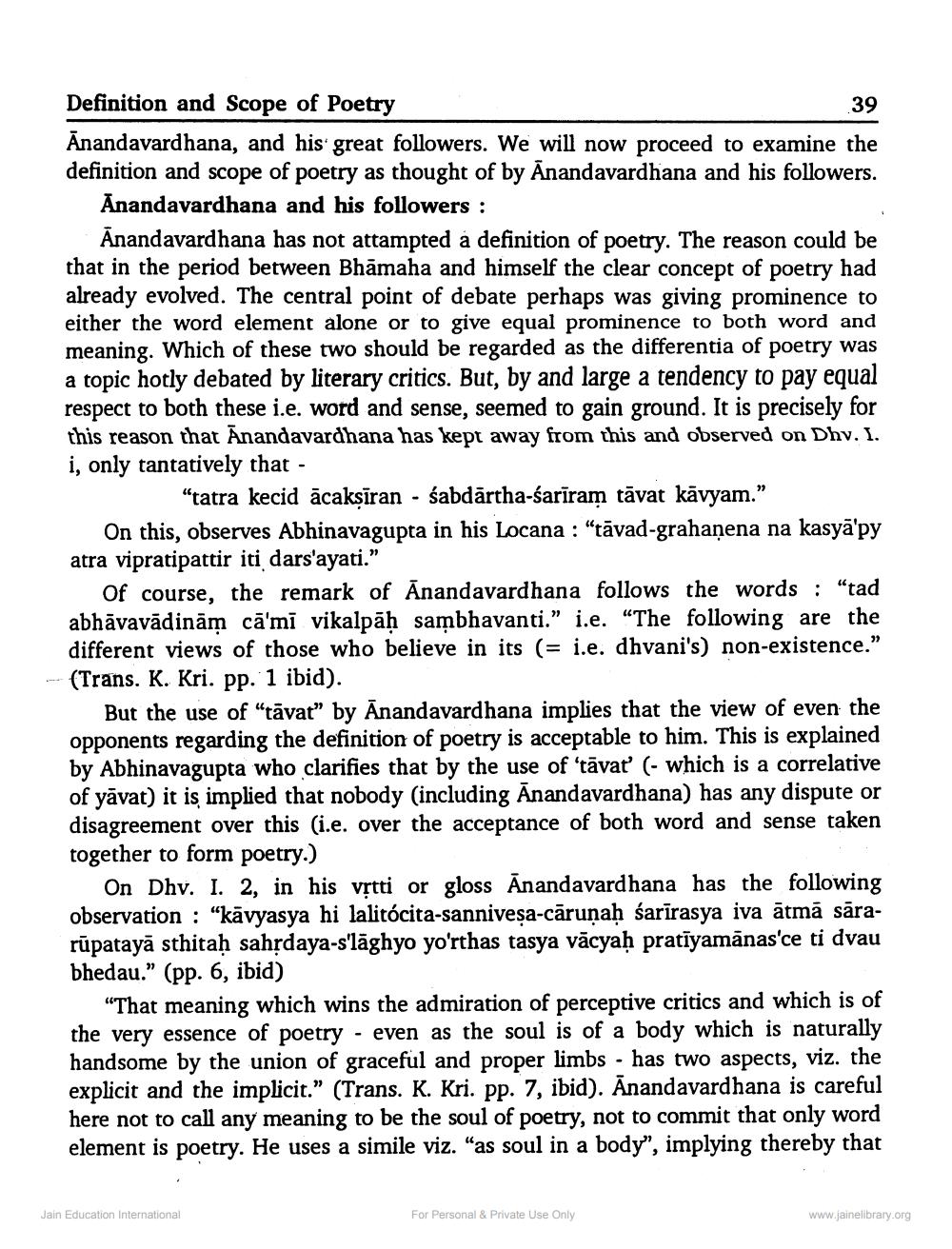________________
Definition and Scope of Poetry
39
Anandavardhana, and his great followers. We will now proceed to examine the definition and scope of poetry as thought of by Anandavardhana and his followers.
Anandavardhana and his followers :
Anandavardhana has not attampted a definition of poetry. The reason could be that in the period between Bhāmaha and himself the clear concept of poetry had already evolved. The central point of debate perhaps was giving prominence to either the word element alone or to give equal prominence to both word and meaning. Which of these two should be regarded as the differentia of poetry was a topic hotly debated by literary critics. But, by and large a tendency to pay equal respect to both these i.e. word and sense, seemed to gain ground. It is precisely for this reason that Anandavardhana has kept away from this and observed on Dhv. 1. i, only tantatively that -
“tatra kecid ācakšīran - śabdārtha-śarīram tāvat kāvyam." On this, observes Abhinavagupta in his Locana : "tāvad-grahaņena na kasyā'py atra vipratipattir iti dars'ayati.”
Of course, the remark of Ānandavardhana follows the words : "tad abhāvavādinām cā'mi vikalpāḥ sambhavanti." i.e. "The following are the
different views of those who believe in its (= i.e. dhvani's) non-existence - (Trans. K. Kri. pp. 1 ibid).
But the use of “tāvat” by Ānandavardhana implies that the view of even the opponents regarding the definition of poetry is acceptable to him. This is explained by Abhinavagupta who clarifies that by the use of 'tāvať (- which is a correlative of yāvat) it is implied that nobody (including Anandavardhana) has any dispute or disagreement over this (i.e. over the acceptance of both word and sense taken together to form poetry.)
On Dhv. I. 2, in his yrtti or gloss Anandavardhana has the following observation : “kāvyasya hi lalitócita-sanniveşa-cārunaḥ śarīrasya iva ātmā sārarūpatayā sthitaḥ sahrdaya-s'lāghyo yo'rthas tasya vācyaḥ pratīyamānas'ce ti dvau bhedau.” (pp. 6, ibid)
"That meaning which wins the admiration of perceptive critics and which is of the very essence of poetry - even as the soul is of a body which is naturally handsome by the union of graceful and proper limbs - has two aspects, viz. the explicit and the implicit.” (Trans. K. Kri. pp. 7, ibid). Ānandavardhana is careful here not to call any meaning to be the soul of poetry, not to commit that only word element is poetry. He uses a simile viz. “as soul in a body", implying thereby that
Jain Education International
For Personal & Private Use Only
www.jainelibrary.org




